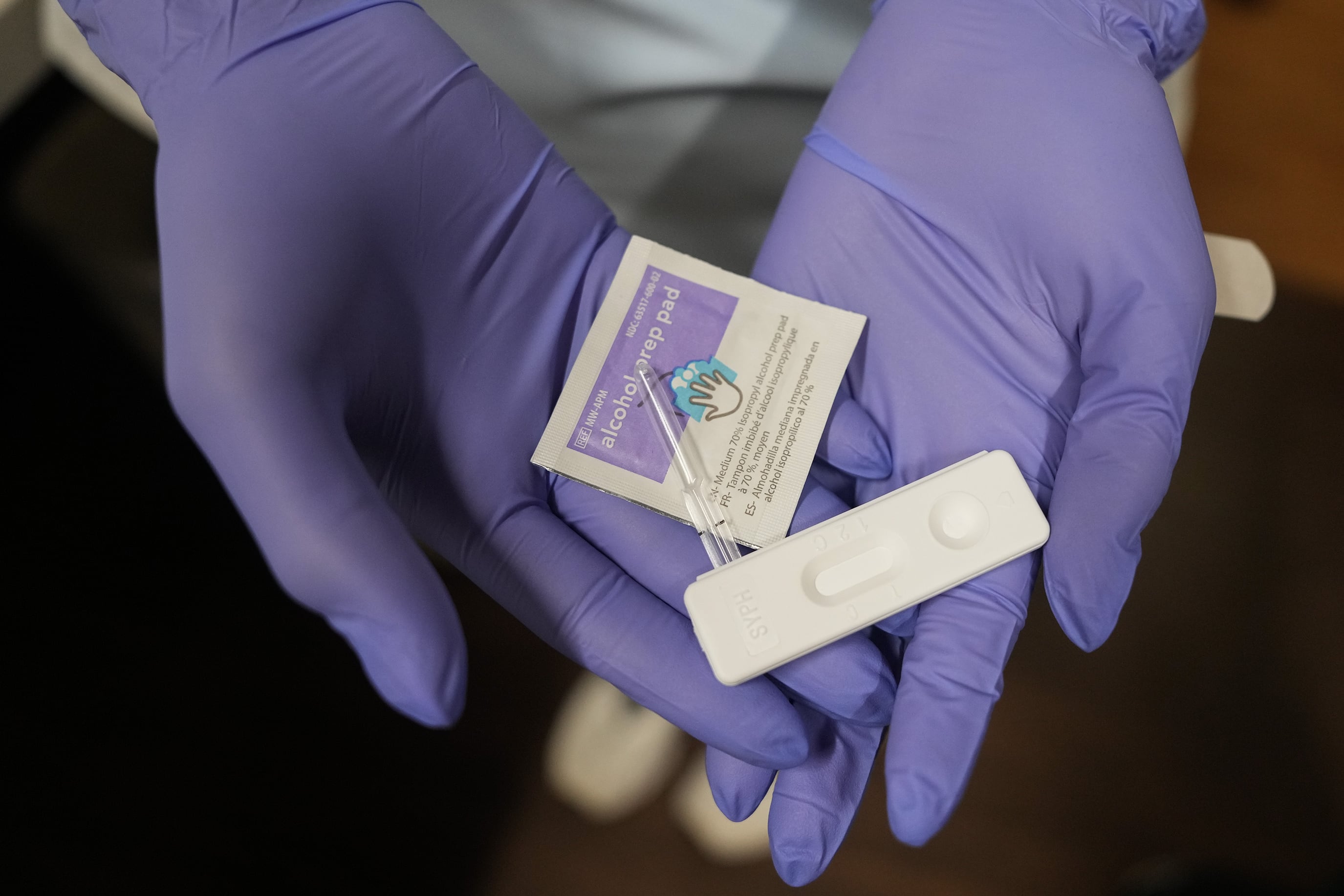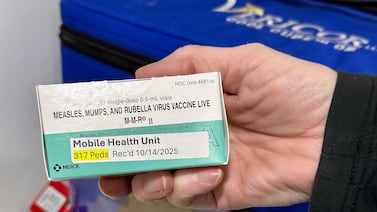Public health, explained: Sign up to receive Healthbeat’s free New York City newsletter here.
At least three babies have died of presumed congenital syphilis in New York state this year as cases continue to rise, the state Health Department announced on Tuesday.
Congenital syphilis, which is passed to a fetus during pregnancy, is a curable infection, but can be harmful or fatal if not caught and treated early. Without treatment, the infection can lead to miscarriage, stillbirth, prematurity and infant death; babies born with it can have deformed bones, severe anemia, brain and nerve problems.
The recent infant deaths — which occurred in counties outside of New York City — underscore the continued challenge of preventing congenital syphilis infections, which physicians and public health experts in New York raised alarms about last year.
“Congenital syphilis cases are definitely continuing to increase not only across the city but across the state, and to date, we overall have not been able to successfully bring those numbers down,” Dr. Rodney Wright, vice chair of obstetrics at Montefiore Medical Center in the Bronx and a member of the New York State AIDS Advisory Council, told Healthbeat.
Until last year, cases of congenital syphilis were rare in the counties outside of New York City, according to the Health Department. In 2024, the state recorded 36 cases, including five stillbirths and one infant death, outside of the city. By comparison, from 2019 to 2023, there were a total of eight infant deaths suspected to be linked to syphilis in that region.
The third infant death marks the 21st congenital syphilis case reported in New York state, excluding New York City, according to the Health Department. To explain the rising number of cases, the Health Department pointed to an increase in reported syphilis cases among women statewide.
“No baby should die from syphilis in New York state or anywhere in this country; it is completely preventable,” state health commissioner Dr. James McDonald said in a statement. “Detecting syphilis early in pregnancy with a simple blood test is important to ensure rapid diagnosis and treatment, so you have a healthy baby.”
In New York City, the Department of Health and Mental Hygiene reported that cases of congenital syphilis were low prior to 2018, but by 2023 had increased by 75%. The city reported 35 congenital syphilis cases in 2023 and 15 cases in the first half of 2024, according to its 2023 surveillance report on sexually transmitted infections.
The increase in congenital syphilis cases in New York mirrors nationwide trends. Congenital syphilis cases have spiked across the country in recent years, rising from 334 cases reported nationwide in 2012 to 3,761 in 2022, according to the Centers for Disease Control and Prevention. The upward trend in congenital syphilis cases also corresponds to nationwide increases in cases of syphilis, which was close to being eliminated in the late 1990s and early 2000s, but has since surged.
If caught early, syphilis is treatable during pregnancy with penicillin. But there has been an unstable supply of the antibiotic in recent years. Shortages of penicillin in the United States began in 2023, which the Food and Drug Administration attributed to rising demand.
In July, the CDC reported a voluntary recall of Bicillin L-A, a long-acting injectable form of penicillin G benzathine, and urged providers to save use of the product for pregnant patients. Penicillin G benzathine is the only effective treatment for syphilis in pregnancy and for the prevention of congenital syphilis, according to the American College of Obstetricians and Gynecologists.
On Aug. 1, in a letter to health care providers, the state Health Department’s AIDS Institute noted that the recall is “expected to last until the fall of 2025 or possibly longer.”
To address the rise in congenital syphilis cases, experts and physicians point to the need for increased public awareness of sexually transmitted infections like syphilis, expanded access to prenatal care, and timely syphilis screenings.
Last year, New York state took additional measures to expand testing, with mandated syphilis testing during the third trimester of pregnancy, in addition to screening at first exam and delivery. New York City has required third trimester syphilis testing since 2019.
Wright, the obstetrician, said while the penicillin shortage has not directly affected his practice, preserving the antibiotic for pregnant people can make it harder to ensure that partners are also adequately treated.
To successfully prevent congenital syphilis, he said, it’s crucial that both the pregnant person and their partner are tested and treated.
“There have been cases where the pregnant patient has been treated, but their partner has not been able to be successfully treated, which can allow for reinfection,” he said.
Eliza Fawcett is a reporter covering public health in New York City for Healthbeat. Contact Eliza at efawcett@healthbeat.org.






